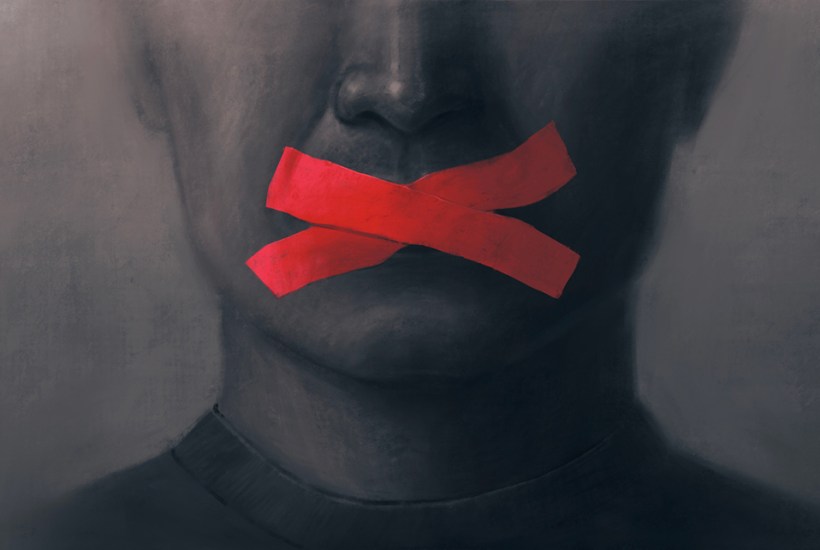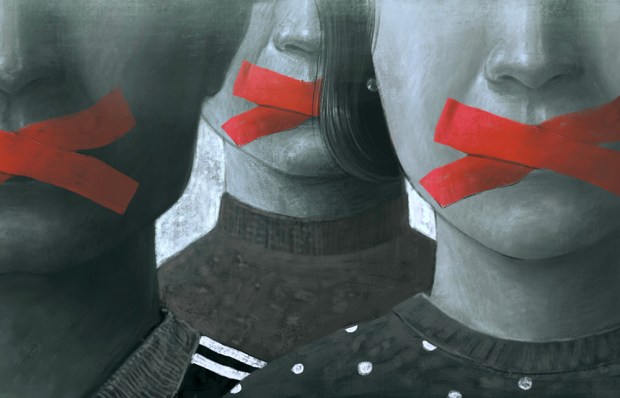I’ve always been envious of journalists who give their names to ‘laws’, as in O’Sullivan’s First Law: ‘All organisations that are not actually right-wing will over time become left-wing.’ So I’m going to take a stab at articulating Young’s First Law and it is this: ‘The more progressive a country is when it comes to sex and gender, the more authoritarian it is when it comes to speech and language.’
The Republic of Ireland is a case in point. Until recently, Ireland was one of the most sexually conservative countries in Europe. Same-sex marriage wasn’t legalised until 2015 and abortion was illegal until 2018. Yet having finally shaken off the yoke of Catholic oppression after 1,500 years, the Irish have embraced a terrifying form of secular authoritarianism. The country is about to pass a new hate speech law that will be the most draconian in the European Union.
According to the Criminal Justice (Incitement to Violence or Hatred and Hate Offences) Bill, which has sailed through the Dáil and is currently being debated in the Senate, it will become an offence punishable by up to five years in jail to incite hatred against a person or group of persons based on their ‘protected’ characteristics, e.g. race, colour, nationality, religion, disability, sexual orientation and gender. According to critics of the bill, the inclusion of that last characteristic means that if you misgender a trans person, you could go to jail.
That sounds implausible, but ‘hate’ isn’t defined in the bill and I know from my work at the Free Speech Union that ‘hate speech’ is a phrase used by woke censors to silence opinions they dislike. For instance, we once went to bat for Kellie-Jay Keen after her petition on Change.org asking the Oxford English Dictionary to retain its definition of a woman as an ‘adult human female’ was removed on the grounds that defining a woman in that way is ‘hate speech’.
But it gets worse. Under the new bill, merely possessing material likely to incite hatred will be a criminal offence, even if you never actually share it with anyone. All the state will have to show is that you intended to do so and, provided it’s reasonable to assume that the material wasn’t meant for personal use, then the onus will be on the defendant to demonstrate that he didn’t have any plans to distribute it. In other words, this bill will reverse the burden of proof – guilty until proven innocent.
To pooh-pooh these fears, supporters of the bill point to the clause defending freedom of expression, which says that a person can avoid jail if the verboten material offers ‘a reasonable and genuine contribution to literary, artistic, political, scientific, religious or academic discourse’. Trouble is, ‘reasonable and genuine’ aren’t defined either, so whether such a defence would succeed is anyone’s guess. And if you think courts can always be trusted to get these judgments right, I give you the case of Rodrigo Iván Cortés, a former Mexican congressman who’s just been convicted in Mexico of ‘gender-based political violence’. His crime? Misgendering a trans-identifying political opponent. (Mexico, which legalised same-sex marriage last year, is also an illustration of Young’s First Law.)
The bill also creates a new offence of ‘condoning, denying or grossly trivialising genocide’. I suspect that will mean that if David Starkey takes a holiday in Ireland and repeats his heretical view that the transatlantic slave trade was not, strictly speaking, a ‘genocide’, he could be arrested. Had this law been in force in 1945, it would have meant the imprisonment of the Irish nationalist leader Éamon de Valera, who offered his condolences to the German ambassador after the death of Hitler and denounced reports of concentration camps in Germany and Poland as ‘propaganda’.
All is not lost, however. Free Speech Ireland, an advocacy group, is waging an effective campaign against the bill and even though the Senate cannot reject it outright, it can amend it, at which point it would return to the lower house. If those amendments are rejected, their supporters can challenge the bill’s constitutionality in the Supreme Court or, if they can collect enough signatures from legislators, the government would have to call a referendum. The best outcome will be if the bill is amended to strengthen the free speech clauses and those changes are accepted by the Dáil. Not great, but better than nothing.
Who would have thought that the blarney-loving Irish would become even greater enthusiasts for language policing than the puritanical Scots, hitherto the best example of Young’s First Law? We can only hope that they’re enjoying their newfound sexual freedom.
Got something to add? Join the discussion and comment below.
Get 10 issues for just $10
Subscribe to The Spectator Australia today for the next 10 magazine issues, plus full online access, for just $10.
You might disagree with half of it, but you’ll enjoy reading all of it. Try your first month for free, then just $2 a week for the remainder of your first year.















Comments
Don't miss out
Join the conversation with other Spectator Australia readers. Subscribe to leave a comment.
SUBSCRIBEAlready a subscriber? Log in